December 23, 2016
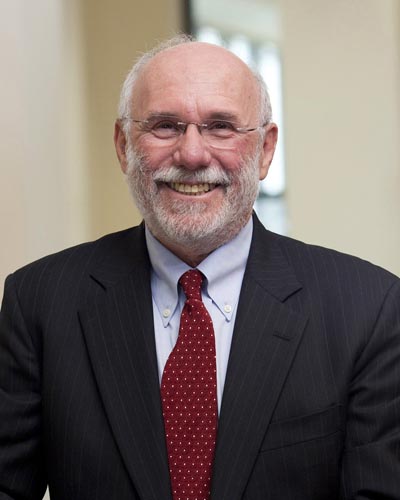
University of Maryland School of Medicine Researchers Involved in Crucial Findings
An experimental Ebola vaccine was highly protective against the deadly virus in a major trial in Guinea, according to a new study that included researchers from the University of Maryland School of Medicine (UM SOM).
Researchers from the Center for Vaccine Development (CVD) at UM SOM and its sister institution, CVD-Mali of Bamako, Mali, took part in the study, which was performed in Guinea, West Africa.
The results were published today in The Lancet. The vaccine is the first to prevent infection from one of the most lethal known pathogens, and the findings add weight to early trial results published last year.
“This hallmark study led by WHO assessed the efficacy of an Ebola vaccine under extremely arduous field conditions during the Ebola epidemic in Guinea in 2015. To perform the field trial, it was necessary within just a few weeks to train cadres comprising ~ 250 field investigators in the principles of Good Clinical Practices. Most of these field workers had not previously participated in a vaccine study or in other forms of clinical research. Intense monitoring of the clinical trial showed that the clinical investigator,” said Myron M. Levine, MD, DTPH, the Simon and Bessie Grollman Distinguished Professor at UM SOM. “We are proud to have contributed to this important work, which involved efforts from many investigators across the globe. The organization and performance of this innovative field trial on short notice in one of the world’s least developed countries with virtually no research infrastructure was an extraordinary tour de force.”
The vaccine, called rVSV-ZEBOV, was studied in a trial involving 11,841 people in Guinea during 2015. Among the 5,837 people who received the vaccine, no Ebola cases were recorded 10 days or more after vaccination. In comparison, there were 23 cases 10 days or more after vaccination among those who did not receive the vaccine.
The trial was led by the World Health Organization, together with Guinea’s Ministry of Health and other international partners.
“While these compelling results come too late for those who lost their lives during West Africa’s Ebola epidemic, they show that when the next Ebola outbreak hits, we will not be defenseless,” said Dr. Marie-Paule Kieny, WHO’s Assistant Director-General for Health Systems and Innovation, and the study’s lead author.
The vaccine’s manufacturer, Merck, Sharpe & Dohme, this year received Breakthrough Therapy Designation from the United States Food and Drug Administration and PRIME status from the European Medicines Agency, enabling faster regulatory review of the vaccine once it is submitted.
Since Ebola virus was first identified in 1976, sporadic outbreaks have been reported in Africa. But the 2013-2016 West African Ebola outbreak, which resulted in more than 11,300 deaths, highlighted the need for a vaccine.
The trial took place in the coastal region of Basse-Guinée, the area of Guinea still experiencing new Ebola cases when the trial started in 2015. The trial used an innovative design, a so-called “ring vaccination” approach - the same method used to eradicate small pox.
When a new Ebola case was diagnosed, the research team traced all people who may have been in contact with that case within the previous 3 weeks, such as people who lived in the same household, were visited by the patient, or were in close contact with the patient, their clothes or linen, as well as certain “contacts of contacts.” A total of 117 clusters (or “rings”) were identified, each made up of an average of 80 people.
Initially, rings were randomized to receive the vaccine either immediately or after a 3-week delay, and only adults over 18 years were offered the vaccine. After interim results were published showing the vaccine’s efficacy, all rings were offered the vaccine immediately and the trial was also opened to children older than 6 years.
In addition to showing high efficacy among those vaccinated, the trial also shows that unvaccinated people in the rings were indirectly protected from Ebola virus through the ring vaccination approach (so-called “herd immunity”). However, the authors note that the trial was not designed to measure this effect, so more research will be needed.
“Ebola left a devastating legacy in our country. We are proud that we have been able to contribute to developing a vaccine that will prevent other nations from enduring what we endured” said Dr. KeÏta Sakoba, Coordinator of the Ebola Response and Director of the National Agency for Health Security in Guinea.
To assess safety, people who received the vaccine were observed for 30 minutes after vaccination, and at repeated home visits up to 12 weeks later. Approximately half reported mild symptoms soon after vaccination, including headache, fatigue and muscle pain but recovered within days without long-term effects. Two serious adverse events were judged to be related to vaccination (a febrile reaction and one anaphylaxis) and one was judged to be possibly related (influenza-like illness). All three recovered without any long-term effects.
It was not possible to collect biological samples from people who received the vaccine in order to analyze their immune response. Other studies are looking at the immune response to the vaccine including one conducted in parallel to the ring trial among frontline Ebola workers in Guinea.
“This both historical and innovative trial was made possible thanks to exemplary international collaboration and coordination, the contribution of many experts worldwide, and strong local involvement,” said Dr. John-Arne Røttingen, director of the Division of Infectious Disease Control at the Norwegian Institute of Public Health, and the chairman of the study steering group.
In January, GAVI, the Vaccine Alliance provided US$5 million to Merck towards the future procurement of the vaccine once it is approved, prequalified and recommended by WHO. As part of this agreement, Merck committed to ensure that 300,000 doses of the vaccine are available for emergency use in the interim, and to submit the vaccine for licensure by the end of 2017. Merck has also submitted the vaccine to WHO’s Emergency Use and Assessment Listing procedure, a mechanism through which experimental vaccines, medicines and diagnostics can be made available for use prior to formal licensure.
Additional studies are ongoing to provide more data on the safety of the vaccine in children and other vulnerable populations such as people with HIV. In case of Ebola flare-ups prior to approval, access to the vaccine is being made available through a procedure called “compassionate use” that enables use of the vaccine after informed consent. Merck and WHO’s partners are working to compile data to support license applications.
The rapid development of rVSV-EBOV contributed to the development of WHO’s R&D Blueprint, a global strategy to fast-track the development of effective tests, vaccines and medicines during epidemics.
CVD and CVD-Mali investigators helped train about 250 field workers for the trial. Dr. Moussa Doumbia, an experienced vaccine clinical researcher at CVD-Mali who was deployed to WHO, served as one of the on-site principal investigators of the Guinea field trial.
The rVSV-ZEBOV trial is funded by WHO, with support from the Wellcome Trust, the United Kingdom Department for International Development, the Norwegian Ministry of Foreign Affairs to the Norwegian Institute of Public Health through the Research Council of Norway, the Canadian Government through the Public Health Agency of Canada, Canadian Institutes of Health Research, International Development Research Centre and Department of Foreign Affairs, Trade and Development and Médecins Sans Frontières.
The trial team includes experts from The University of Bern, the University of Florida, the London School of Hygiene and Tropical Medicine, Public Health England, the European Mobile Laboratories among others. The trial was designed by a group of experts including the late Professor Donald A. Henderson of John Hopkins University, who led the WHO smallpox eradication effort by using the ring vaccination strategy.
About the University of Maryland School of Medicine
The University of Maryland School of Medicine was chartered in 1807 and is the first public medical school in the United States and continues today as an innovative leader in accelerating innovation and discovery in medicine. The School of Medicine is the founding school of the University of Maryland and is an integral part of the 11-campus University System of Maryland. Located on the University of Maryland’s Baltimore campus, the School of Medicine works closely with the University of Maryland Medical Center and Medical System to provide a research-intensive, academic and clinically based education. With 43 academic departments, centers and institutes and a faculty of more than 3,000 physicians and research scientists plus more than $400 million in extramural funding, the School is regarded as one of the leading biomedical research institutions in the U.S. with top-tier faculty and programs in cancer, brain science, surgery and transplantation, trauma and emergency medicine, vaccine development and human genomics, among other centers of excellence. The School is not only concerned with the health of the citizens of Maryland and the nation, but also has a global presence, with research and treatment facilities in more than 35 countries around the world.
Contact
Office of Public Affairs
655 West Baltimore Street
Bressler Research Building 14-002
Baltimore, Maryland 21201-1559
Contact Media Relations
(410) 706-5260
Related stories
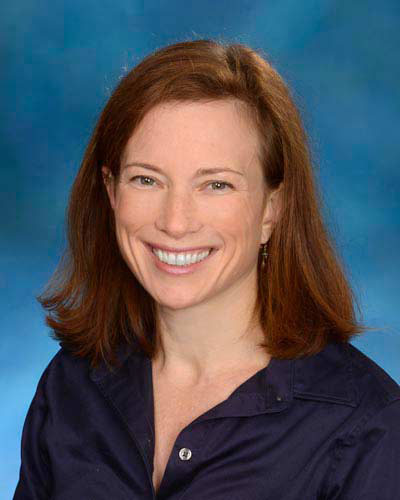
Tuesday, April 30, 2024
Miriam K. Laufer Appointed Interim Director of the Center for Vaccine Development and Global Health
The University of Maryland School of Medicine (UMSOM) Dean, Mark T. Gladwin, MD, announced that Miriam K. Laufer, MD, Professor of Pediatrics, Medicine, and Epidemiology & Public Health, has been appointed as the Interim Head of UMSOM's Center for Vaccine Development and Global Health (CVD).

Tuesday, April 30, 2024
Miriam K. Laufer Appointed Interim Director of the Center for Vaccine Development and Global Health
University of Maryland School of Medicine (UMSOM) Dean, Mark T. Gladwin, MD, announced that Miriam K. Laufer, MD, Professor of Pediatrics, Medicine, and Epidemiology & Public Health, has been appointed as the Interim Head of UMSOM's Center for Vaccine Development and Global Health (CVD).
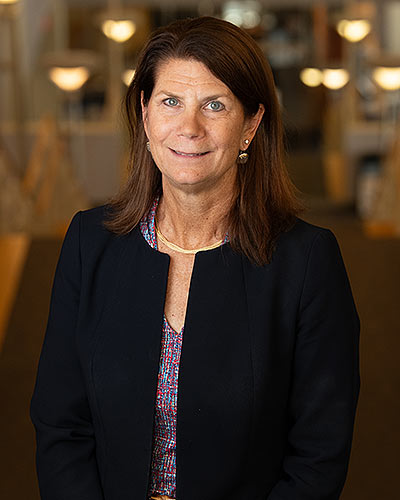
Thursday, March 28, 2024
NIH selects Dr. Kathleen Neuzil as Director of The Fogarty International Center
Kathleen M. Neuzil, MD, MPH, Director of the University of Maryland School of Medicine’s (UMSOM) Center for Vaccine Development and Global Health, has been named the 13th director of the Fogarty International Center (FIC), which is part of the National Institutes of Health (NIH). Dr. Neuzil will be the first woman to hold the permanent directorship since the center’s founding in 1968 and will also hold the position of Associate Director for International Research at NIH.
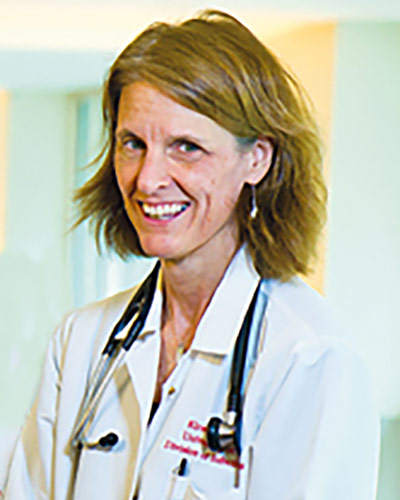
Thursday, October 12, 2023
UM School of Medicine's Kirsten Lyke Elected as Member of Prestigious National Academy of Medicine
Kirsten E. Lyke, MD, Professor of Medicine and Physician-Scientist at the Center for Vaccine Development and Global Health (CVD) at the University of Maryland School of Medicine (UMSOM), was elected this week as a new member of the National Academy of Medicine (NAM). She was recognized for her pivotal research in emerging infections and human challenge models that have informed and shaped global vaccine and public health policy.

Thursday, January 26, 2023
Small Study Shows Promise for Antimalarial Monoclonal Antibody to Prevent Malaria
A monoclonal antibody treatment was found to be safe, well tolerated, and effective in protecting against malaria in a small group of healthy volunteers who were exposed to malaria in a challenge study, according to new research published in by researchers at the University of Maryland School of Medicine (UMSOM).
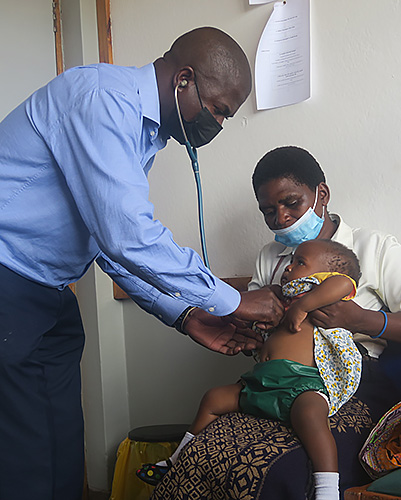
Tuesday, August 09, 2022
New Study Confirms Typhoid Vaccine Safety, Immune Response in Children
A new study, published in The Lancet Global Health, finds typhoid conjugate vaccine, Typbar TCV®, provides immunity for up to 3 years in children as young as 9 months old in Malawi. The research – conducted by the Blantyre Malaria Project, Malawi-Liverpool-Wellcome Trust, and researchers at the Center for Vaccine Development and Global Health (CVD) at the University of Maryland School of Medicine (UMSOM) – found that the TCV vaccine is safe and well tolerated. Importantly, the vaccine can be given to 9-month-old infants at the same time as routine measles-rubella vaccinations without reducing the immune response to either vaccine.
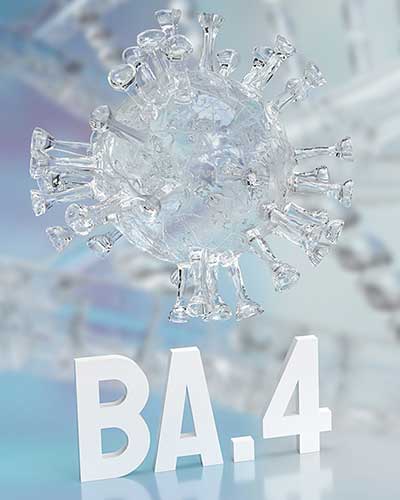
Monday, August 08, 2022
New Study Finds Rapid Decline in Vaccine-Boosted Neutralizing Antibodies Against Omicron Subvariant BA.5
A study led in part by investigators at the University of Maryland School of Medicine’s (UMSOM) Center for Vaccine Development and Global Health found that although COVID-19 booster vaccinations in adults elicit high levels of neutralizing antibodies against the Omicron variant of SARS-CoV-2, those antibody levels decrease substantially within three months. Kirsten E. Lyke, MD, Professor of Medicine at UMSOM and scientist at CVD, is Co-Chair and site Principal Investigator for the study, and Meagan Deming, MD, PhD, Assistant Professor of Medicine at the UMSOM, also a scientist at CVD, is Vice-Chair of the study, which is a collaboration between investigators at the UMSOM’s CVD and the Institute of Human Virology (IHV).
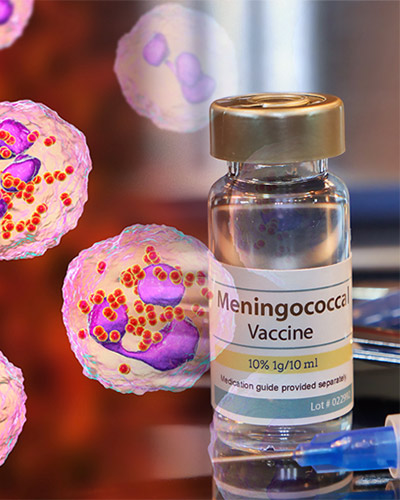
Thursday, March 24, 2022
UM School of Medicine Leads Research to Assess Meningococcal Vaccine for Infants and Young Children in Africa
Researchers at the University of Maryland School of Medicine (UMSOM)’s Center for Vaccine Development & Global Health (CVD) are leading a study to evaluate the use of a pentavalent – or five in one – meningococcal conjugate vaccine (NmCV-5) among infants and young children in the meningitis belt of sub-Saharan Africa. This is the final and pivotal study for World Health Organization (WHO) prequalification of this vaccine, which is the last stage to make the vaccine available for low- and middle-income countries.
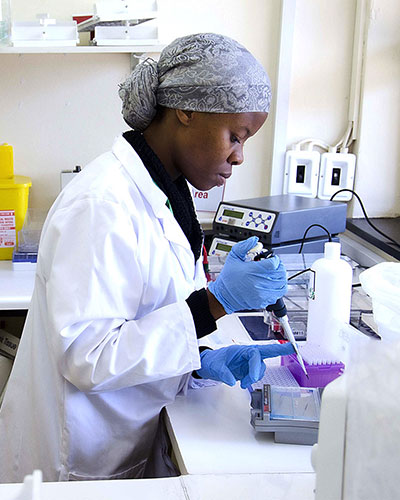
Thursday, September 16, 2021
First Efficacy Results from Africa find Typhoid Vaccine to offer 84 Percent Protection against Typhoid Fever
A new study, published in the New England Journal of Medicine, finds a single dose of typhoid conjugate vaccine (TCV) – the only typhoid vaccine licensed for children as young as 6 months – is safe and 84 percent effective in protecting against typhoid in Blantyre, Malawi. These are the first efficacy results from Africa and part of a five-year, multi-country project to accelerate introduction of TCV.
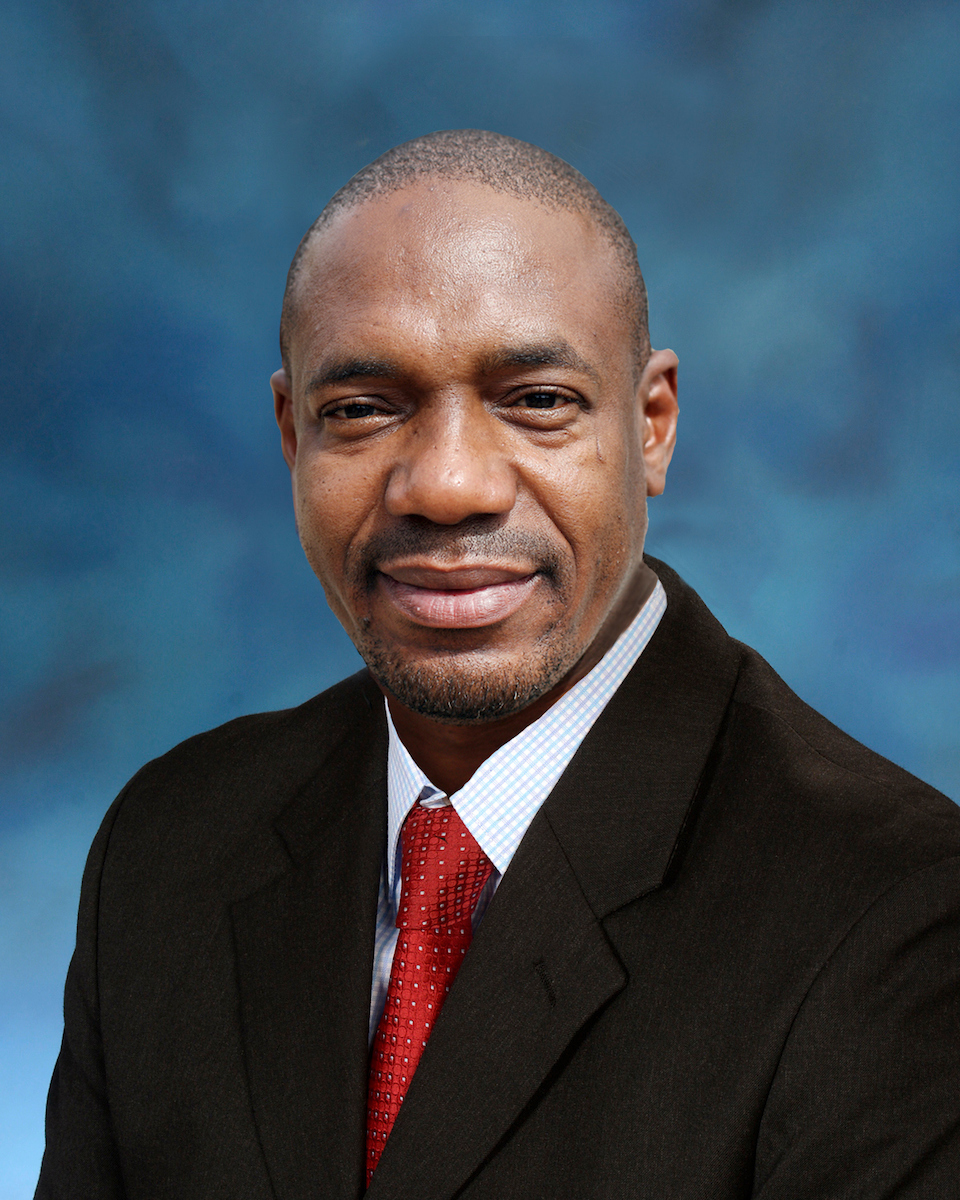
Tuesday, February 25, 2020
World Health Organization Names UMSOM Faculty Member as COVID-19 Advisor
Samba Sow, MD, MSc, FASTMH, Director General of the Center for Vaccine Development in Mali (CVD-Mali), and Adjunct Professor of Medicine at the University of Maryland School of Medicine (UMSOM), was appointed by the World Health Organization (WHO) to serve as a special envoy on issues related to coronavirus COVID-19.
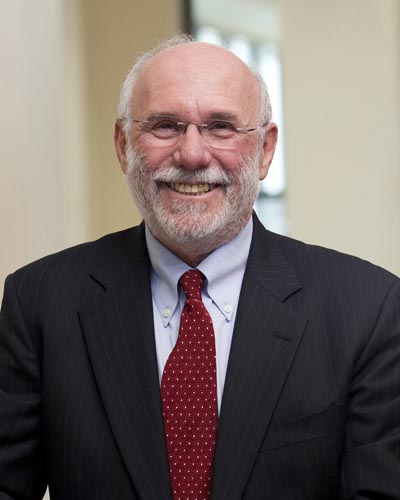
Thursday, January 09, 2020
UM School of Medicine Research Shows Less Severe Cases of Diarrheal Illness can Still Lead to Child Deaths, Even Weeks Following Onset of the Illness
Diarrheal diseases are a leading cause of death for young children, accounting for nine percent of all deaths worldwide in children under five years of age, with most occurring in children under two years of age. Now, researchers at the University of Maryland School of Medicine (UMSOM) found that even milder cases of diarrheal diseases can lead to death in young children.

Wednesday, October 30, 2019
UM School of Medicine's Myron M. Levine, MD, DTPH, to Receive Prestigious Lifetime Award for Five Decades of Pioneering Vaccine Research
Myron M. Levine, MD, DTPH, the Simon and Bessie Grollman Distinguished Professor at the University of Maryland School of Medicine (UMSOM), Associate Dean for Global Health, Vaccinology and Infectious Diseases, and Founder and Former Director of the Center for Vaccine Development and Global Health (CVD) is a co-recipient of the 2020 Research! America Geoffrey Beene Foundation Builders of Science Award for his pioneering vaccine and infectious disease research.

Thursday, December 20, 2018
Data From Largest Global Diarrheal Disease Study Available to Scientists on Public Sites
Data collected from the Global Enteric Multicenter Study (GEMS), a multi-site research project studying diarrheal diseases that was designed and coordinated by researchers in the Center for Vaccine Development and Global Health (CVD) at the University of Maryland School of Medicine (UMSOM), are now available to scientists on two online data resources.
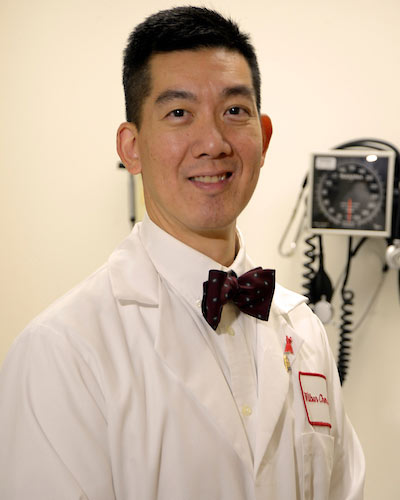
Tuesday, March 20, 2018
UMSOM Vaccine Experts Lead Trial on Avian Flu Vaccine
Vaccine experts at the University of Maryland School of Medicine (UMSOM) have begun multiple clinical trials of vaccines designed to protect against H7N9, an avian influenza virus that was first reported in humans in 2013 in China.
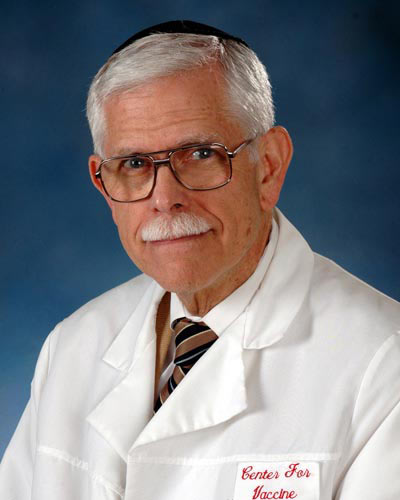
Tuesday, November 21, 2017
UM SOM Scientist Elected as Fellow of American Society of Tropical Medicine and Hygiene
Robert Edelman, MD, a Clinical Professor of Medicine and Pediatrics at the University of Maryland School of Medicine (UM SOM), has been elected as a Fellow by the Board of Directors of the American Society of Tropical Medicine and Hygiene (ASTMH). This honor was awarded for his sustained professional excellence in tropical medicine, hygiene, global health, and related disciplines.

Thursday, June 08, 2017
University of Maryland School of Medicine Vaccine Researcher Receives Top Award in the Study of Infectious Diseases from National Foundation
Myron M. Levine, MD, DTPH, the Simon and Bessie Grollman Distinguished Professor and Associate Dean for Global Health, Vaccinology and Infectious Disease at UM SOM, has been awarded the Maxwell Finland Award for Scientific Achievement by the National Foundation for Infectious Diseases (NFID).

Monday, May 15, 2017
UM SOM Vaccine Researcher Receives Top Award in the Study of Infectious Diseases
Myron M. Levine, MD, DTPH, the Simon and Bessie Grollman Distinguished Professor and Associate Dean for Global Health, Vaccinology and Infectious Disease at UM SOM, has been awarded the Maxwell Finland Award for Scientific Achievement by the National Foundation for Infectious Diseases (NFID). The award honors his extensive accomplishments in public health; over his career, he has identified solutions to major sources of disease in the developing world, including cholera, typhoid, and Shigella dysentery. The award will be presented on Thursday, May 18, 2017 at the Hyatt Regency Bethesda in Bethesda, Md.
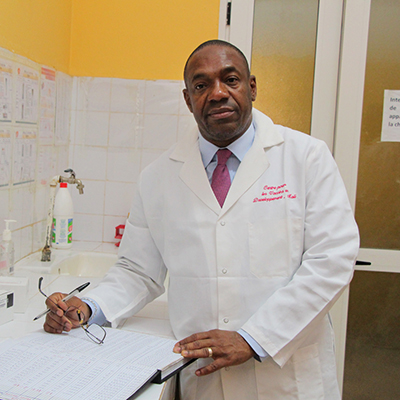
Thursday, March 16, 2017
University of Maryland School of Medicine Researcher Receives French Legion of Honor for His Work Fighting Ebola in Mali
Samba Sow, MD, MSc, Director General of the Center for Vaccine Development in Mali (CVD-Mali), and Adjunct Professor of Medicine at the University of Maryland School of Medicine (UM SOM), has been decorated as a Knight of the Legion of Honor from the French government.

Friday, January 13, 2017
Scientists Identify Vaccination as the Most Cost-Effective Strategy to Sharply Reduce Rabies Deaths in India
Every year in India, 20,000 people are estimated to die from rabies. Most of the victims are children. Nearly all of the deaths occur after victims are bitten by rabid dogs. For years, experts have debated the best strategy to reduce this burden.
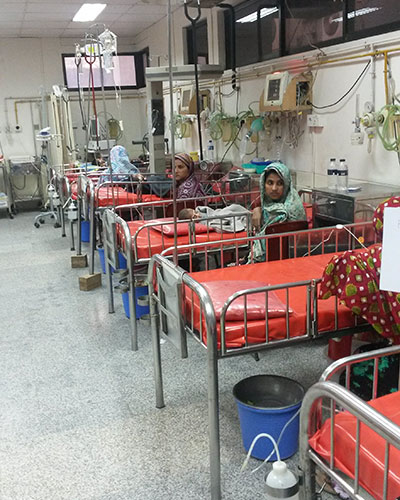
Friday, June 10, 2016
FDA Approves Vaccine for Cholera Invented and Developed at University of Maryland School of Medicine
In a milestone that was years in the making, a vaccine to prevent cholera, invented and developed by researchers at the University of Maryland School of Medicine’s Center for Vaccine Development, was approved today by the U.S. Food and Drug Administration (FDA).
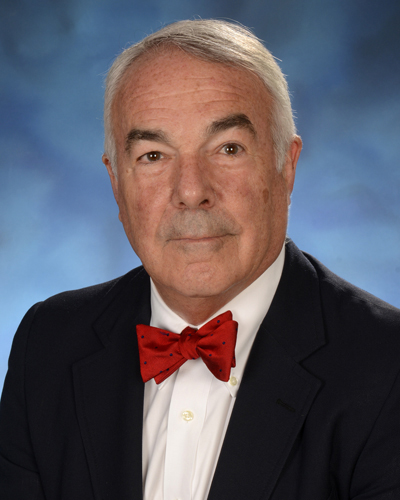
Monday, January 11, 2016
UM SOM to Collaborate with Industry to Develop a Vaccine to Prevent Common, Deadly Infection
The Center for Vaccine Development (CVD) at the University of Maryland School of Medicine (UM SOM) will participate in a partnership with industry to develop a vaccine to prevent a group of deadly bacterial infections that occur commonly among hospital patients
